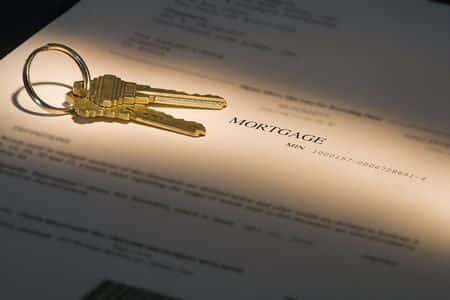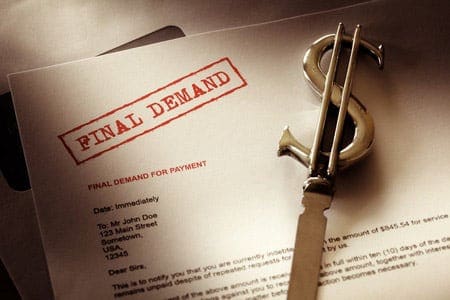Foreclosure & Mortgage Delinquency

Late Mortgage Payments and How to Deal with Them When you fall behind on your mortgage, staying in your home may not be possible. You may be able to avoid foreclosure, for example, but have to walk away from your home. Of course, the ideal situation is one where you are able to resolve your mortgage delinquency, avoid foreclosure, and keep your home. Let’s take a look at some different programs and options that might help you work with your lenders and avoid foreclosure. Refinance your Mortgage When you refinance your mortgage, you could receive a new account with a lower interest rate or other favorable terms. The benefit here is that refinancing can make your payments or terms more affordable. Mortgage Reinstatement With a mortgage reinstatement, you must bring your delinquent loan current in one lump sum payment. The benefit of a mortgage reinstatement is that it allows you to avoid foreclosure by “catching up” and bringing your account current. If you cannot do that immediately, you will need to prove the funds needed will be available by a specific future date. This may also follow a forbearance plan as described below. Mortgage Repayment Plan Using this option, you pay back your past-due payments together with your normal monthly payments over an extended period of time. The benefit is that you can catch up on your late payments without having to make a large lump sum payment (as with a mortgage reinstatement). Mortgage Forbearance Plan Following a forbearance plan, you make no payments or reduced payments for a specific period of time. The benefit is that the forbearance period is meant to give you the time you need to improve your financial situation. Mortgage Modification When it comes to mortgage modification, you receive modified terms for your account designed to make your payment more affordable. In order to do this, you must successfully complete a 3 or 4 month trial period plan. Mortgage modification is often used as a permanent solution to a long-term or permanent hardship by modifying your account so that your payments or terms are more affordable. Short Sale When you owe more than your home is worth, a short sale allows you to sell your home and pay off a portion of the outstanding balance. The benefit of a short sale is that it allows you to transition out of your home and avoid going through foreclosure. In some cases you are eligible for relocation assistance to help with the transition. Deed in Lieu of Foreclosure A deed in lieu of foreclosure is a deed instrument that allows you to transfer ownership of your property back to the lender. The benefit of a deed in lieu of foreclosure is that it allows you to transition out of your home and avoid going through foreclosure. This is a useful option if there are no other liens on your home. In some cases you are eligible for relocation assistance to help with the transition. Avoiding Mortgage Foreclosure With all of these options available, you will need to work with your lender to see what programs you may qualify for. When you do, you’ll find the application process is not an easy one, and lenders can make it very difficult for you. When you hire the law firm of Harold Shepley & Associates, you will work directly with a Mortgage Foreclosure Defense Specialist who will be with you every step of the way. Our Specialist will be your point of contact with the lender and find out what options you may qualify for. We will try to make this difficult time as easy for you as possible by taking on the burden of phone calls and submitting documents to your lender so that you do not miss time from work and your family. Take action today by calling Harold Shepley & Associates. Gain a peace of mind as we work with your lender to resolve your delinquency. More information about debt relief is available on our Debt Negotiation page. Call us today at 877-827-9006, or complete our easy to use contact form. We’re ready to help.
Mortgage Modification

Struggling with a Possible Mortgage Default? It happens every day across America: people struggling to pay their home mortgage look into a modification loan to reduce their monthly payments. Ironically, the bank tells the struggling homeowner that they can’t be helped unless they fall behind on their mortgage. Once the homeowner falls behind, they often hear that no help will be available until they get back on track and current with their mortgage. What is a person to do? Do’s and Don’ts of Mortgage Modification At Harold Shepley & Associates, we’ve developed a 9 point guide to dealing with the subject of a modified mortgage. After you review these “dos and don’ts,” it’s best to talk with an experienced attorney who works with homeowners just like you, every day. Call us at 877-827-9006, or visit our easy-to-use Contact Us page. Never fall behind on your mortgage unless you absolutely cannot keep up with the payments. Many good people have lost their homes because of unscrupulous companies talking them into defaulting on their mortgage in order to help with a mortgage modification. If you do fall behind, try to keep up with your mortgage payments as much as possible. As long as your mortgage company is accepting payments, they will not foreclose. If you can’t make your payment, open up a separate savings account at your local bank and put as much as you can into this account each month. Pretend that this money is already spent. It needs to be off limits to anything other than keeping your home. Once you are behind, don’t be afraid to call up your lender and ask to do a mortgage modification. Some lenders are easy to work with, others are not. Don’t forget that while you are “negotiating” with your lender, your lender is also proceeding with a foreclosure against your property. They won’t stop foreclosure proceedings until the debt is paid or a new arrangement is completely finalized. Ask a professional that can provide actual foreclosure defense to help you. Your lender has attorneys working for them, so you definitely need an attorney working for you. Be careful not to get scammed by a “fly by night” out-of state-company that offers you something too good to be true. Make copies of all your documents before you send them anywhere. Mortgage companies are notorious for losing documentation and requesting copies again and again. Don’t agree to something you can’t afford. Too often people sign mortgage modifications fully aware they cannot make the payments. This could really hurt them because some lenders have policies in place that require a set amount of time between mortgage modifications. Sometimes they even limit modifications to once or twice for the life of the loan. More information about debt relief is available on our page for Debt Negotiation. Call us today at 877-827-9006, or complete our easy to use contact form. We’re ready to help.
What is the Statute of Limitations

When it comes to Credit Card Debt? If you have old debts, you may be wondering if a creditor is able to collect on them.It is true that debt collectors have only a limited number of years in which to take legal action and sue you to collect. This is known as the “statute of limitations.” Each state allows for a different period of time to collect the debt. Certain circumstances can reset the clock, and in those cases, the debt statute of limitations starts all over again. Most states have debt collection periods of 3-6 years after the first missed payment and some have statute of limitation as long as 10 years. After that time, the unpaid debt is considered “time – barred” meaning that a debt collector can no longer sue on the account. No matter where the debt collector is based, he’s bound by your state’s statute of limitations. What Happens after the Statute of Limitations Expires? After the statute of limitation expires, a debt collector cannot sue for repayment of the debt. However they may continue to contact you about repayment. Once the statute of limitations has passed, you can decide if you will pay a time-barred debt. Each decision has it benefits and drawbacks. The FTC recommends consulting a debt relief attorney before taking action. Choosing not pay to pay a debt collector: Even though a collector can’t sue you to recoup the debt after the statute of limitations expires, they can continue contacting you. Also, refusing to pay your debt will also have a negative effect on your credit score. Making a partial payment to a debt collector: Paying off only some of the debt is risky. In some states, if you pay any amount, the debt is revived and is no longer time-barred. In other words, this resets the statute of limitations clock and debt collectors can once again sue. Paying off the debt: If you choose to pay off the debt, even though the collector may not be able to sue you, this might help your credit score. Some collectors may be willing to accept a less amount that what is owed. They may accept a lump sum payment or installments. However, make sure that you have a written and signed agreement with the creditor that paying this amount will settle your full debt before you begin repaying. This document should state that the entire debt is being settled and that the amount to be paid will release you from any further obligation. Doing this will prevent issues associated with them saying that it was a partial payment on the debt or selling the difference off to another collection company. Keep a record of the payments you make to pay off the debt. Harold Shepley & Associates can Help At Harold Shepley and Associates, LLC, we have the experience you need to deal with situations of old debt and the statute of limitations. We are a full service Law Firm that is client-oriented and will work hard to meet your personal needs in this situation. Call us today at 877-827-9006, or complete our easy to use contact form. We’re ready to help.
Cross-Collateralization

How Your Property can be affected by Cross-collateralization Agreements Cross-collateralization sounds like a frightening legal and financial term. What is it? Simply put, it is the use of one piece of collateral to secure more than one loan. When you apply for a new loan, then your credit union or bank may use collateral that you already posted for and existing loan to act as collateral for your new, anticipated loan. How do I identify a Cross-collateralization Agreement? Read it! Before you sign any loan agreement, you need to spend some time reading the document. You cannot raise an issue with the contract at a later time with the explanation that you did not read it. Most of the time the agreement should have a heading over a section called “Security” or “Security Interest.” If you agree to post any collateral for the loan, then there will be a description of the collateral and most of the time it will be listed in the “Security Interest” section of the contract. As an example, if you are already paying for an automobile loan, and the new loan that you apply for now references the same automobile as collateral, chances are that this is a cross-collateralization agreement. What Lenders use Cross-collateralization Agreements? In our experience, we see that most credit unions use these types of agreements. Because credit unions are careful to minimize the losses to their respective organizations, these lenders typically use cross-collateralization to help guarantee payment on the loans that they issue. Can I Avoid a Cross-collateralization Agreement? Yes. Assuming that you want a small personal loan, then one thing you can do is obtain the new loan from a different lender. A different lender is unlikely to use collateral for its loan in a case where there may be a pre-existing lien on a piece of property. Another suggestion is to avoid borrowing at a credit union if you are concerned that you may unknowingly sign a cross-collateralization agreement. If you need to learn more, call us today at 877-827-9006, or complete our easy to use contact form. How can a Cross-collateralization Agreement affect me? Let’s look at an example. Assume that you obtained an automobile loan at your local credit union and that you are still making payments on the automobile loan. Next, let’s assume that you need to apply for a personal loan at the same credit union. The lender might use the automobile as collateral for your personal loan. If so, this is a perfect example of a cross-collateralization agreement. After the personal loan is issued and you have made several payments on the loan, assume that financial difficulty strikes and you can no longer afford the payment on the personal loan and you just stop making the regular monthly payments. However, you can afford to continue making your regular monthly payments on the original automobile loan. Your lender has several options. It can do nothing; It can sue based upon your breach of the contract; Or it may repossess your automobile. Repossession sounds like a harsh remedy, but it can occur. Why? Remember in this example that the automobile is posted as collateral for the second, personal loan. If you fail to make payments on the second, personal loan it is the same as defaulting on the payments on your original automobile loan! How does Chapter 7 Bankruptcy affect a Cross-collateralization Agreement? If you file a Chapter 7 case, you must inform the court and creditors what you intend to do with property that is posted as collateral for a loan. In some cases it may be necessary to continue making payments on the original automobile loan and the second, personal loan, in the example above. Failure to pay on one of the loans results in a default and the automobile is subject to repossession. A Chapter 7 case will not eliminate your need to make the regular monthly payments on these two loans if you want to keep the automobile. On the other hand, assume that the automobile is old, and perhaps it needs a lot of repairs. Or perhaps you simply cannot afford the monthly automobile payment and the second, personal loan payment. It may be in your best interest to surrender the collateral in a Chapter 7 case and owe nothing more to the lender. The unfortunate part is that you will lose the collateral. However, you may have the opportunity to find a replacement automobile that is affordable based upon your budget. To read more about the way that the United States Bankruptcy Court for the Western District of Pennsylvania has addressed this issue, you may want to read the opinion issued by the Court in Renshaw v. Clearview Fed. Credit Union (In re Renshaw), 447 B.R. 453 (Bankr. W.D. Pa. 2011). Would you like to speak with the attorneys at Harold Shepley & Associates, LLC about cross-collateralization? Call us today at 877-827-9006, or complete our easy to use contact form. We’re ready to help. How does Chapter 7 Bankruptcy affect a Cross-collateralization Agreement? At Harold Shepley and Associates, LLC, we have the experience you need to deal with situations of old debt and the statute of limitations. We are a full service Law Firm that is client-oriented and will work hard to meet your personal needs in this situation. Call us today at 877-827-9006, or complete our easy to use contact form. We’re ready to help.

